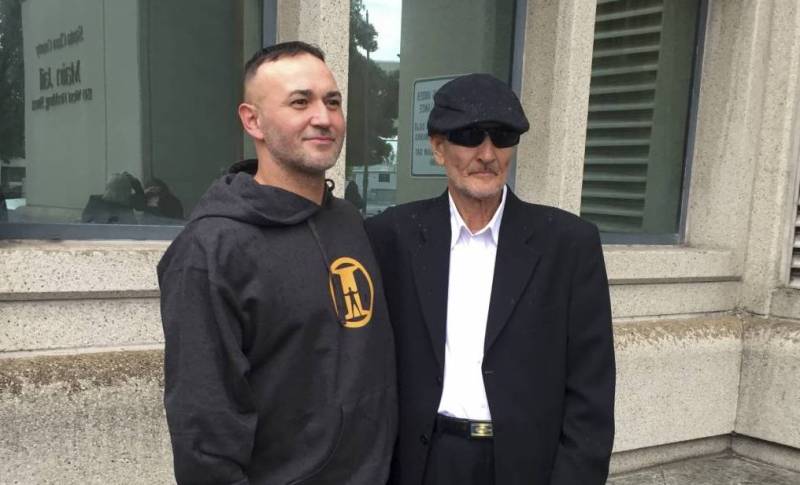Witnesses also later admitted that police pressured them to make their statements, the lawsuit claimed.
Nick Brustin, one of Rubalcava’s attorneys, called his client an amazing and resilient person.
“With all the things that he has been through, a lot of people would have lost hope and would be angry. He’s none of those things,” Brustin said. “He came out of prison and completely rebuilt his life. He’s got two businesses, he’s rebuilding his family, and he’s taking care of his parents. So to be able to see this resolve for him is just an incredible feeling.”
The city attempted to have the entire case thrown out, but a federal judge in March allowed the lawsuit against San José Police Detective Joe Perez and Officers Steven Spillman and Topui Fonua, who investigated the case, to go to trial.
“A jury reasonably could infer that Perez, Fonua, and Spillman falsified the police reports for the purpose of depriving Rubalcava of constitutional rights,” U.S. District Court Judge Beth Labson Freeman noted in her March order.
“The city strongly believes the officers who investigated this case did so objectively and fairly,” San José City Attorney Nora Frimann said in an email on Tuesday after the vote. “Unfortunately, police officers often become the object of blame and are really the only people in the system against whom a lawsuit can be brought.”
Frimann said because the monetary awards in wrongful conviction cases “have the potential to have a devastating impact to city budgets, it is prudent for cities to manage these claims by resolving them as best they can.”
Brustin said the money compensates Rubalcava for all he has been through and will help him readjust to his new life.
“We have to acknowledge that the city has finally done the right thing and has compensated Lionel, and that sends a strong message both on his innocence and what happened to him,” Brustin said. “But for many years, they fought tooth and nail, wouldn’t concede his innocence, attacked him and his character in ways that just were not helpful.”
Brustin said the large payout should be painful for the city and should push its leaders to openly assess their internal practices to identify systemic issues that may have affected other cases.
Frimann said in the years since the Rubalcava’s criminal trial, “investigative techniques and practices have evolved and changed, but not in response to this case.” She said the review by the Santa Clara County District Attorney’s Office that led to Rubalcava being found factually innocent “did not conclude that police acted wrongfully.”
Santa Clara University law professor Linda Starr, co-founder of the Northern California Innocence Project, who oversaw research on Rubalcava’s case, said she is extremely happy this long and arduous chapter in his life is finally over, though she is cognizant that no amount of money can give back so much lost time.
“I think that’s a wonderful thing,” Starr said. “It’s time for him to be able to just live his life.”

